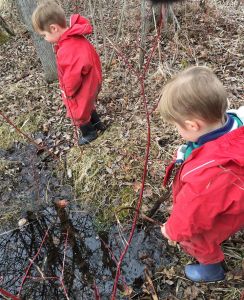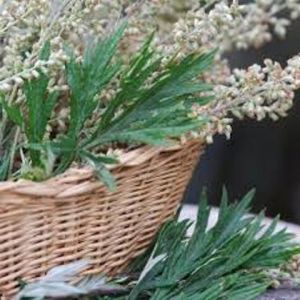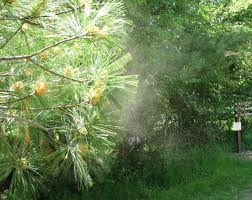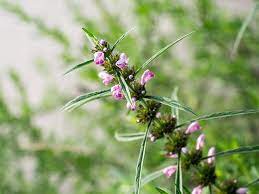_______________________________________________________________________________________________________________________
________________________________________________________________________________
________________________________________________________________________________
On Being an Elder - November 2016 by Krow Fischer
I had a moment with my almost three-year-old grandson yesterday.
I was taking him to the car for our ‘Granny day out’ and he hauled off and hit me across the face, hard. I was shocked and surprised as I have only ever experienced the sweetest of hugs from my little guy.
We continued to the car without a word and I buckled him in his car seat and then facing him, I stroked his downturned face softly and told him that I loved him, his mommy and Dad loved him, his aunties and his PopPop loved him. I listed his Dad’s side of the family too as part of the tribe that loved him, told him we all knew he is having a hard time right now and we all are here to help him with it. I told him, ‘You don’t have to do this all by yourself, all these big feelings and everything, we are all here to help you. We all love you very, very much, you are precious to us’, I told him. His little chin quivered and he heaved a big sigh.
I really meant every word I said, I know that toddlers have the best BS detectors around and if he sensed any insincerity on my part he would let me know it!
We do know he is having a rough time. He is one of those active, (but not hyperactive) kids who love to try things, climb things, check things out. He also does not land on his feet well. Usually, he lands on his head.
This has led to doctors and hospitals and naturopaths and sacral cranial appointments and chiropractic intervention. (Yes he is well looked after by smart, well-informed parents and is on the right supplements and protocols for healing his bumped brain.)
We know that the last fall off a chair’s ‘goose egg on the forehead’ is still healing and that aggressive behaviour can be part of the fallout.
We also know that there is a new baby sister that takes Mommy’s attention, even with dad at home now. Maybe even worse, this new baby sister and his beloved twin brother seem to have a very special bond. Now I suspect that his future with her is going to be one of his best friends and confidants and she already is starting to wrap him around her little finger, so we’re not too worried about that relationship, but he needs our help to adjust to these changes, we the adults in his life.
He needs to know that he has support and safety, that we, his family, will always try to understand and help and that he does not have to handle it all himself.
He needs to know he can get help, even if he cannot yet articulate his emotional and physical needs in the adult ways we seem to expect from children.
I told him that I get grumpy too sometimes, that everybody does and that it is OK to be grumpy. I never said a word about hitting, he already knew it was not OK to hit me and obviously felt bad about that. I did not want him to feel bad. I wanted him to know he would have help and that I as the elder, the adult, could handle any behaviour and that we could work it out.
I went to get his brother to buckle him in and by the time I returned seconds later, he was smiling and talking.

Grand Adventutes often include mud and water!
We had a wonderful day together going on a special outing in the morning to a playgroup where he shared and played with his brother and other friends. He was respectful and kind to the other children and was quite thoughtful and sweet to me.
We came back to our place after lunch (and a nap in the car on the way home) and had a long hike through the woods with lots of games and imaginative play, just the three of us. Ponds, puddles and garden hoses ‘Fireman to the rescue!!” a muddy but fun afternoon.
Supper and another long walk with PopPop, bath, and in pyjamas ready to go back home to bed, he gave me a big hug and told me he loved me.
It was a long day for our little guys but apparently, they stayed up late to tell their parents all about what they did, fact and fancy intertwined to tell the ‘real’ stories.
Whatever our little guy was going through that morning he knew that no matter what, he would be loved and included and that his adult people would make sure he was safe, for himself and for others around him.
I have heard his Mom say things to him like, ‘I will not let you throw those toys, if you cannot stop yourself I will help you do that and put them away to keep them safe. We can go get the balls out and you can throw them, but trucks and books are not for throwing.”
I have heard her say ‘I will not let you hurt your brother, if you cannot keep your hands from hitting we will sit over here away from your brother together until you can calm down and play safely.’
She then follows through. These little guys have been raised to know that they are safe, no matter how big their feelings get. Their adults will be, well, adults!
I imagined what it would be like for a child who does not have this kind of familial support, what kinds of patterns of shame and betrayal get imprinted in those tender early brain response patterns.
I did not have to look very far to see the consequences of so many children raised without that support.
In our society and many others, reward and punishment and behavioural modification techniques are what we offer our children instead of love, respect and compassion.
We yell at, hit, isolate and publicly humiliate our children or withdraw our attention and love.
‘I only like you when you are good, when you do what I want.’ we tell them with every action.
We snatch things out of their hands, talk over them and ignore them, threaten and scold them, and force them to conform to whatever schedule we happen to have in place on any given day.
We use bribery, sugar, television, and presents to coerce obedience. Trophies and stickers, the good kids and the bad kids are sorted out in our classrooms and we wonder why so many people in our societies suffer from addictions, low self-esteem, over or under-eating and depression. We are shocked at our high suicide rates and overflowing prisons. We wonder why we still have war, murder, poverty and displacement. We wonder why our children are attracted to terrorism and violence.
We have been practicing these dysfunctional ways of raising children for generations and we have a big mess.
Our societies are run the same way our families are run and that should be no surprise! We are co-creators of our social realities and what we collectively believe to be true, no matter how insane that may be, becomes the societal norm.
We punish those with mental or emotional problems, those with addictions and those who do not conform and obey. We reward ‘proper’ behaviour with cars and jobs and martinis and vacations and nice gold watches.
We have a lot of crooks in places of wealth and power who know how to play the game, to modify behaviour to get what they want and we have many creative and innovative people who do not have a voice, because they do not ‘fit’ the status quo. The consequences are devastating. Worldwide, we are not happy with the way life is going on this planet.
I imagine a world where everyone belongs and knows they will be loved and cared for from day one. I imagine a world where we support each other through our rough periods with compassion and respect, whether in a family, a community, a country or a planet. Is this Pollyanna thinking?
I am not saying it is easy, or instant, but I believe it can shift.
It is much easier if these patterns of respect can be in place from early childhood; it is very hard, but not impossible, to change them in an adult mind. Programs like ‘Roots of Empathy’ and early childhood resource centres like the one we visited that morning are aiming us in a healthy direction for those formative years and I believe we need to continue funding these precious resources.
It is much easier to change if our surroundings reflect this respect and compassion, if that is the normal behaviour of our peers, we tend to conform. We are, after all, primates and it is important to feel we belong to our ‘units’.
I have certainly seen this take place many times; participating in a particular music festival that holds strict ideals about cooperative behaviour, workshops, retreats or a workplace or play place where the ‘norm’ is inclusiveness, respect and compassion. These healthy environments have a huge effect on people attending. I have seen lives change simply from being immersed in a healthy community, even for just one weekend.
Perhaps that is one thing we can do, continue to role model sane behaviour to our communities and families. We can practice good communication, respect and love in all social situations. Perhaps as we learn to undo the negative conditioning that we were imprinted with, we can assist in the social evolution of those around us and thus our world.
That, after all, is the traditional role of the grandparents, the elders, to pass on societal norms.
For the sake of our precious little ones, we need to at least try to be healthy elders.
Krow Fischer(c)
________________________________________________________________________________
________________________________________________________________________________





